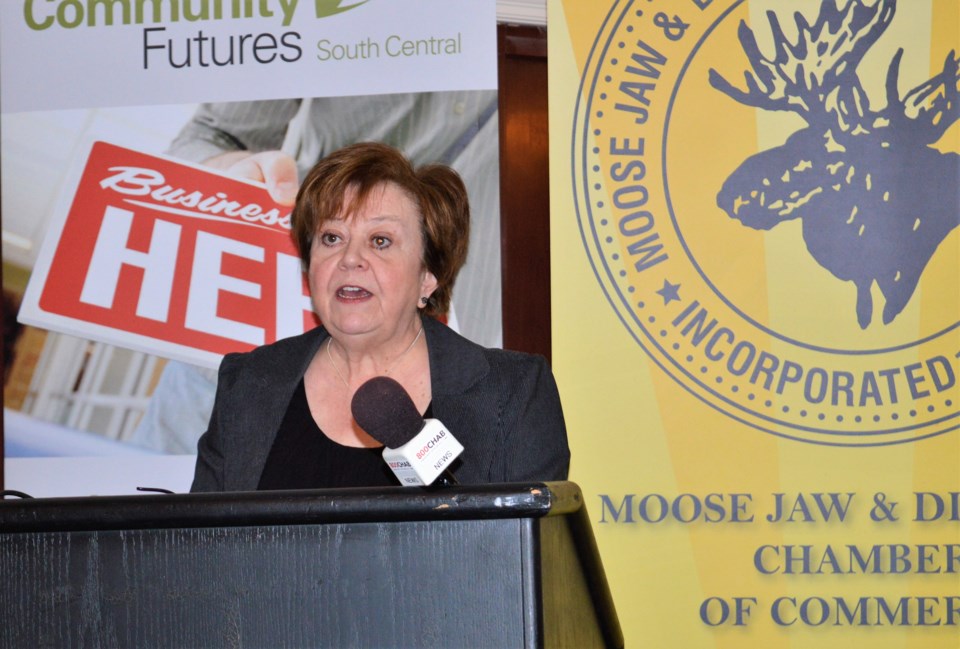The provincial government presented a balanced budget and they are determined to diversify the economy and reduce their reliance on resource revenues.
“We used to rely on resource revenues in this province at about an average of 25 per cent. One year it was 32 per cent. In this budget, we are relying on it 12 per cent,” said Saskatchewan’s Finance Minister Donna Harpauer Thursday at a Moose Jaw & District Chamber of Commerce luncheon. “We have now got a revenue base that is more sustainable going forward.”
The provincial budget was released on Mar. 20, mere days before Chinese importers stopped buying Canadian canola. Harpauer said that outside forecasters were projecting a two per cent growth in the gross domestic product (GDP) for the coming year, but that was before the canola trade issue with China. Canada exports approximately 40 per cent of its canola to China and that was worth $2.7 billion in 2018.
“The budget came down before the canola issue and absolutely it’s going to have an impact (on GDP),” Harpauer said. “We’re very concerned about the issue around canola. We’re a trade-dependent province and there is no doubt that with what’s happened with China and canola that we will be impacted more than any other province in our country.”
While the provincial government tries to lessen its reliance on revenue from non-renewable sources, Saskatchewan has always lived and died economically based on the strength of its resources.
“The balance is very difficult,” Harpauer said. “We basically have three sources of income and that is the transfers from the federal government – the health transfer and the social transfer – and it is taxation and it is our resources. Basically, the resource revenue that we’ve moved away from is more our non-renewables, but agriculture is more of a staple industry. Having said that, crop failure or a trade failure – such as we’re experiencing right now – has a huge impact on our budget.”
Harpauer said that the provincial budget has been well-received as she tours the province since it was announced.
The provincial budget projects revenues of $15.03 billion versus expenses of $14.99 billion for a projected surplus of $34.4 million.
Despite presenting a balanced budget for the first time in four years, the provincial debt is projected to grow by $1.8 billion over the fiscal year with it expected to rise to $21.7 billion overall.
“My biggest concern is that operating debt and that’s why it’s so important to balance (the budget),” Harpauer said.
There were no new taxes and no tax increases in the budget and Harpauer announced an addition to one of the newly announced tax credits.
“This budget contains a new non-refundable tax credit for volunteer firefighters and volunteer medical first responders who serve and protect and help Saskatchewan people when they need it most. Beginning with the 2020 taxation year, individuals with at least 200 hours of volunteer service in a year will be able to claim a $3,000 tax credit,” Harpauer said before teasing an announcement that will be formally made next week. “Because of people who reached out to us, we will be extending this tax credit to include search and rescue volunteers as well.”




